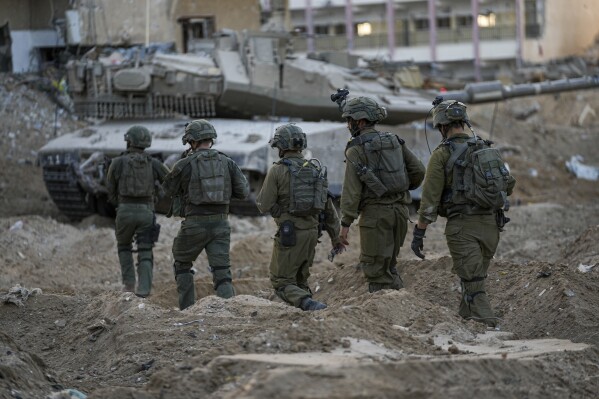Israel is gearing up for a possible ground operation in Lebanon, as tensions with Hezbollah continue to escalate. This announcement follows Hezbollah's recent firing of dozens of rockets across the border, including a missile aimed at Tel Aviv, marking the group's most significant strike to date.
Addressing troops on the northern border, Israel's Chief of Staff Lt. Gen. Herzi Halevi stated that Israel's ongoing airstrikes are intended to "prepare the ground for your possible entry and to continue degrading Hezbollah." He warned that Hezbollah has expanded its range of fire, promising a “very strong response” to their recent actions.
The U.S., France, and other allies have called for an immediate 21-day cease-fire, citing the conflict's toll of over 600 lives and the risk of broader regional escalation. Their joint statement, issued during discussions at the United Nations General Assembly, described the ongoing fighting as "intolerable."
In response to the heightened hostilities, the Israeli military has announced the activation of two reserve brigades for operations in the north, signaling a potential increase in military action. Although the military previously indicated there were no immediate plans for a ground invasion, Halevi's comments suggest that troop movements could be forthcoming.
The conflict between Israel and Hezbollah has intensified since the outbreak of war with Hamas nearly a year ago. Hezbollah's rocket attacks have been launched in solidarity with Palestinians in Gaza, prompting heavy Israeli airstrikes and targeted operations against Hezbollah leaders.
Recent Israeli strikes have resulted in a significant death toll in Lebanon, with the Lebanese health ministry reporting 72 deaths on Wednesday alone, raising the total to 636 over the past three days. Many casualties include women and children, underscoring the humanitarian crisis unfolding amid the conflict.
At a hospital in Baalbek, a survivor described the chaos of the attacks, recounting the loss of family members as warplanes struck nearby.
Hezbollah claimed responsibility for the launch of a Qader 1 ballistic missile targeting Israeli intelligence, accusing Israel of orchestrating recent targeted killings of its commanders. While Israeli military officials confirmed intercepting a missile that triggered air-raid sirens in Tel Aviv, they dismissed Hezbollah's claims as “psychological warfare.”
The recent spike in violence has displaced over 90,000 people in Lebanon, with many fleeing to urban centers like Beirut and Sidon, turning schools and public spaces into temporary shelters. The U.N. reports that approximately 200,000 individuals have been displaced since the conflict escalated last year.
As both sides brace for further escalation, U.S. Secretary of State Antony Blinken has urged restraint, warning that a full-scale war would have devastating consequences for the region. Lebanon's Prime Minister Najib Mikati has called on the U.N. Security Council to ensure Israel withdraws from occupied territories and to address ongoing violations.








)